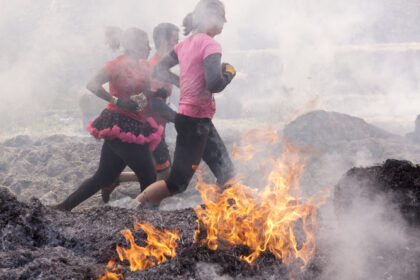You all had a wonderful variety of questions at Sunday’s Question Box service! And there was such an abundance that there was no way to do all of them justice during worship. So, I hope that within a couple of Bonus Tracks we can cover a few more of the bigger questions on your mind.
The most common question in those left in the Question Box after the service was some version of this framing by Peggy: How does one stay mindful and in the moment in the face of all that is going on in Washington? To shut down the fear and trepidation without hurting ourselves by shoving it into a back corner for the next few years?
I’ve shared a couple of initial thoughts in the People of UUCC social media group. What I can say for myself is that my contemplative spiritual practices are the container and the compass for so much of my response to things happening in the world.
Part of me certainly wants to react—and keep reacting. To stay so busy that I don’t even come close to feeling something unpleasant. Turn all my potentially unpleasant emotions into something that feels powerful, even if I’m just pretending to have power over something I don’t really control.
And of course, another part of me wants to run from feeling painful things. To fill my life with pleasant and numbing distractions. That’s another way we tend to shut down fear, I suppose. But it isn’t really based on any life-affirming value.
So, for me, I begin with feeling it all. Whatever emotions are present belong to me. They all say something about my experience, and I don’t have to be afraid of feeling things. I might remind myself with a somatic practice that I’m capable of holding all that I feel. But then I ask myself why.
Why is this what I’m feeling? What’s behind this feeling? What story am I telling? What am I afraid of? What feels like it’s at risk? How much of this is from a state of connection, and how much is from a state of disconnection?
Then, I tap into that sense of connection, first and foremost with my personal guiding principles. My spiritual compass. You might use something like the UU values of Interdependence, Transformation, Generosity, Pluralism, Equity, and Justice—or some other way you personally define Liberating Love. Or maybe you have a clear set of guiding principles that help you discern how to nurture yourself and the world around you toward greater wholeness.
From that place of connection with my personal guiding principles, fully embracing all that I’m feeling, I ask: What is mine to do? What do I need in order to act in alignment with my values in this moment? How do my life-affirming values call me or compel me to respond? (Which is often different than what my emotions prompt me to do without any reflection.)
I also have a personal vision of what beloved community can be. I hold the possibility in my mind for meaningful authentic connection between people who are fully alive. Rather than fight against something (which seems most often to strengthen whatever I’m fighting against), I have the option to devote energy to that vision of wholeness and deep connection. I can’t get there by allowing my emotions full reign over my behavior, and I can’t get there by ignoring my emotions either. The boundaries of my guiding principles focus how my emotions can fuel meaningful action that moves things in the direction of hopeful vision. And my contemplative practices are the laboratory where those elements meet and merge.
That’s at least a part of my answer to several of the questions that we didn’t get to answer in Sunday’s service. I hope it sparks some possibilities for you.
Share this post:
